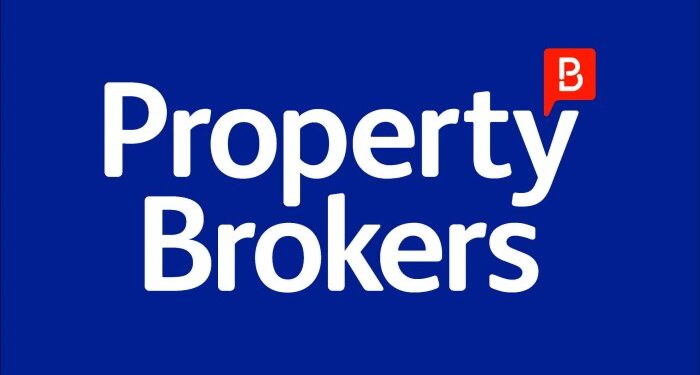Delving into the realm of property brokers, this article aims to shed light on their crucial role in real estate transactions. From defining their responsibilities to exploring the differences between brokers and agents, this piece is a comprehensive guide for those seeking insight into this profession.
Overview of Property Brokers
Property brokers play a crucial role in real estate transactions by acting as intermediaries between buyers and sellers. They help facilitate the buying, selling, or renting of properties while ensuring a smooth and successful transaction.Property brokers differ from real estate agents in that brokers have obtained additional certification and are able to work independently.
Brokers can also hire and supervise real estate agents, whereas agents must work under a broker's supervision.
Responsibilities and Duties of Property Brokers
Property brokers have a range of responsibilities and duties, including:
- Assisting clients in buying, selling, or renting properties
- Providing market analysis and property valuation
- Negotiating deals and contracts on behalf of clients
- Ensuring compliance with legal requirements and regulations
- Managing property listings and marketing strategies
Qualifications and Licensing

To become a property broker, individuals must meet specific educational requirements and obtain a license to practice legally in the real estate industry. The process involves completing the necessary education, passing a licensing exam, and fulfilling ongoing requirements to maintain the license.
Educational Requirements
- Individuals interested in becoming property brokers typically need to complete a certain number of real estate courses, which cover topics such as property law, contracts, financing, and ethics.
- These courses can usually be taken at a real estate school or online, and the number of required courses may vary depending on the state.
- Some states may also require candidates to have a certain level of formal education, such as a high school diploma or equivalent.
Obtaining a Property Broker License
- After completing the required education, individuals must pass a state licensing exam to demonstrate their knowledge of real estate laws and practices.
- The exam typically covers topics such as property management, real estate finance, and fair housing laws.
- Once the exam is passed, applicants can submit their licensing application to the state real estate board along with any required fees.
Ongoing Education and Training
- Property brokers are often required to complete continuing education courses to stay up-to-date on industry trends, changes in regulations, and best practices.
- These courses help brokers maintain their knowledge and skills, ensuring they provide quality service to their clients.
- Failure to complete the required continuing education could result in the suspension or revocation of the broker's license.
Services Offered

Property brokers offer a range of services to assist clients in buying, selling, or renting properties. These services are designed to provide support and expertise throughout the real estate transaction process.
Listing and Marketing Properties
Property brokers help clients list their properties for sale or rent. They use their knowledge of the market to determine the appropriate listing price and create marketing strategies to attract potential buyers or tenants.
Property Valuation
Brokers offer property valuation services to determine the fair market value of a property. This information is crucial for both buyers and sellers to make informed decisions about pricing.
Negotiation Assistance
Property brokers assist clients in negotiating offers, counteroffers, and other terms related to the sale or purchase of a property. Their expertise can help clients secure the best possible deal.
Legal Guidance
Brokers provide guidance on legal aspects of real estate transactions, ensuring that all contracts and agreements comply with relevant laws and regulations. This helps protect clients from potential legal issues.
Market Analysis
Brokers conduct market analysis to provide clients with insights into current real estate trends, pricing, and competition. This information is valuable for making informed decisions about buying or selling properties.
Property Management
Some property brokers offer property management services to help clients manage rental properties. This can include finding tenants, collecting rent, and handling maintenance issues on behalf of property owners.
Investment Advice
Property brokers may also provide investment advice to clients interested in real estate investment opportunities. They can offer insights into potential properties for investment and help clients make strategic decisions to maximize returns.
Market Trends and Analysis
Property brokers operate in a dynamic market influenced by various trends that impact their business strategies and operations. It is crucial for property brokers to stay informed about these trends to effectively navigate the market and provide optimal services to their clients.
Impact of Market Trends
- Rising Demand: Property brokers need to monitor shifts in demand for different types of properties, such as residential, commercial, or industrial, to align their services with market needs.
- Interest Rates: Fluctuations in interest rates can affect the affordability of properties, influencing buying and selling decisions in the real estate market.
- Technological Advancements: Property brokers must adapt to technological innovations like online listings, virtual tours, and digital marketing to enhance their services and reach a wider audience.
Adapting to Changing Market Conditions
- Continuous Education: Property brokers invest in ongoing training and professional development to stay updated on market trends, regulations, and best practices.
- Diversification of Services: Brokers may expand their service offerings to include property management, investment consulting, or relocation services to cater to diverse client needs.
- Networking: Building strong relationships with other industry professionals, such as lenders, appraisers, and contractors, helps property brokers stay informed and adapt to market changes.
Importance of Market Analysis
- Competitive Edge: Conducting thorough market analysis enables property brokers to identify opportunities, assess competition, and differentiate their services to attract clients.
- Risk Management: By analyzing market trends and forecasting potential changes, brokers can mitigate risks and make informed decisions to protect their business interests.
- Client Satisfaction: Understanding market dynamics allows property brokers to provide valuable insights to clients, helping them make well-informed decisions regarding property transactions.
Last Point

In conclusion, property brokers play a vital role in navigating the complex world of real estate transactions. With a keen understanding of market trends and a dedication to serving clients, brokers stand as pillars of support in the property market.
Detailed FAQs
What are the educational requirements to become a property broker?
To become a property broker, individuals typically need to complete specific real estate courses and obtain a broker's license.
How do property brokers assist clients in buying or selling properties?
Property brokers help clients by providing market analysis, arranging property viewings, negotiating deals, and handling paperwork for a smooth transaction.
Do property brokers offer additional services to their clients?
Yes, property brokers may offer services such as property management, investment advice, and property valuation to cater to the diverse needs of their clients.














